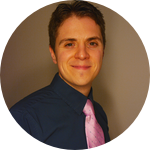About This Project
Scientific meetings are a critical part of training young scientists, but attending meetings can be financially difficult for many. Help train the next generation of scientists working to cure breast cancer, prostate cancer, and other hormone-driven cancers by supporting their attendance at the Gordon Research Seminar "Hormone-Dependent Cancers".
Ask the Scientists
Join The DiscussionWhat is the context of this research?
The next generation of scientists that will lead cancer research is already hard at work in the laboratory. In the lab, graduate students and postdoctoral fellows generate data and drive projects that lead to new discoveries.
These early-career researchers (ECRs) are trained as bench scientists, but to continue their careers as senior scientists, ECRs must also develop as communicators, collaborators, and leaders. These skills are practiced and honed at scientific meetings.
Meetings also allow ECRs to identify shared scientific passions and goals, which are necessary for strong, long-term collaborations. Team science approaches founded by these relationships are critical to advancing laboratory research and ultimately improving patient care.
What is the significance of this project?
Breast and prostate cancer are the most frequently diagnosed cancers in the US. While current research efforts are important, it is critical to develop the next generation of ECRs that will come to lead the field and fight these diseases.
The Gordon Research Seminar Hormone-Dependent Cancers is a unique meeting on breast, prostate, and other cancers, supported by senior scientists but developed by ECRs. This format allows ECRs to:
- Present their cutting edge work among peers
- Network and form collaborations with peers
- Develop leadership and science communication skills
Despite the importance of meetings for ECRs, as funding becomes tight, meetings are often the first thing to be cut.
What are the goals of the project?
The overall goal of this project is to help ensure that no ECR is prevented from attending the GRS due to financial constraints. This project seeks to raise funds to cover meeting expenses (registration fees, lodging, and meals for 2 days) for 3 talented ECRs.
ECRs will submit an abstract of their work as part of their application to attend the meeting, along with a statement of financial need. Based on both scientific merit and evidence of need, three ECRs will be provided funding support to cover their expenses for the GRS.
Promoting meeting attendance will help to develop the community of researchers that will continue the fight against breast and prostate cancer.
Budget
Thank you for your support!
Now that we've reached our funding goal, all further support will go toward additional travel awards. Each additional $400 will support another ECR!
Scientific meetings are critical in the development of early career researchers (ECRs - graduate students or postdoctoral fellows), but many labs cannot afford to send their ECRs to meetings. However, travel grants can make attendance possible. With this project, travel grants will be awarded to three promising ECRs, based on both need and scientific merit, to support their attendance at this meeting.
Supporters will learn about travel grant awardees, their research, and their experiences at the meeting, via Lab Notes before and after the meeting. See our Lab Notes to learn more!
Travel grants will cover the costs for:
- Meeting registration fees (~$320), which includes:
- All conference costs/fees
- Overnight accommodations at the meeting site
- Meals during the meeting
- Transportation to/from Boston Logan Airport (~$80)
Meet the Team
Team Bio
Matt Sikora is a postdoc at the University of Pittsburgh. His research focuses on understanding the actions of hormones, such as estrogen, in breast cancer. He also studies how therapies that target the action of estrogen (endocrine therapies) work to stop tumor growth, why they don't always work, and how we can make them work better for patients. His publications can be found here.
Matt is serving as Chair of the 2015 Gordon Research Seminar "Hormone-Dependent Cancers". He is thrilled to be able to organize this meeting with his colleagues, and is looking forward to the collaborations and friendships that will develop during the meeting.
Outside of the lab, Matt is a passionate college sports fan, an avid homebrewer, and a proud new dad.
Follow Matt on Twitter @mjsikora
Ask him about his research, the meeting, or maybe his favorite combination of malt and hops.
Additional Information

Top - At the 2013 GRC, an interactive session on key questions in the field generated exciting discussion. Bottom left - At poster sessions, ECRs discuss their work with both peers and senior scientists.
The GRS is a novel take on smaller, intimate local meetings. Bottom center - an ECR presents her work at a poster session to a senior scientist. Bottom right - an ECR raises a question after an oral presentation.
Photos from the 2013 'Hormone-Dependent Cancers' GRC, credit Dan Gioeli. Photos from the 2013 Women's Cancer Research Center Retreat, credit Mei Zhang.
Project Backers
- 19Backers
- 100%Funded
- $1,204Total Donations
- $58.26Average Donation

